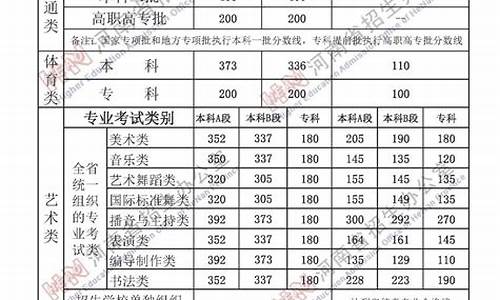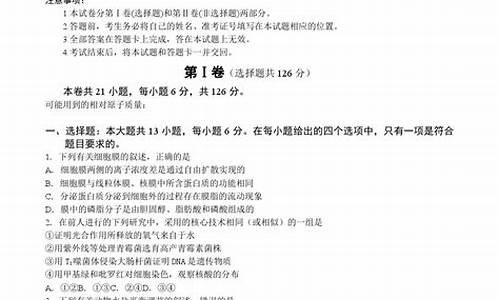您现在的位置是: 首页 > 教育政策 教育政策
高考英语知识点总结精华版,高考英语知识点大全
tamoadmin 2024-05-19 人已围观
简介1.高中英语所有知识点本文是 考 网写作翻译频道 为您准备的《高考英语重要知识点:写作重点句型》请大家参考! (1)、疑问词+ever whatever, whoever, whichever, whenever, wherever, however用来引导让步状语从句,相当于no matter和what, who, which, when, where, how连用。 [例句] Wha
1.高中英语所有知识点

本文是 考 网写作翻译频道 为您准备的《高考英语重要知识点:写作重点句型》请大家参考!
(1)、疑问词+ever whatever, whoever, whichever, whenever,
wherever, however用来引导让步状语从句,相当于no matter和what, who, which, when, where, how连用。
[例句]
Whatever (=No matter what) may happen, we shall not lose hope.
无论发生什么事,我们都不能失去希望。
Whatever reasons you (may) have, you should carry out a promise. 无论你有什么理由,你都应该遵守诺言。
Whoever (=No matter who) comes, he will be warmly welcome. 无论谁来,都会受到热烈欢迎。
Whenever (=No matter when) it happened, it was certainly not yesterday.
此事无论发生在何时,但绝不是昨天。
Whenever you (may) call, you will find her sitting by the window. 无论什么时候你去找她,你都会看到她坐在窗边。
Wherever (=No matter where) he went, he made friends with people.
Whichever (=No matter which) of them you many choose, the quality will be the same.
他们当中不论你选哪一个,品质都一样。
However (=No matter how) hard I have tried, I can't find the answer.
(2)、whatever, whoever, whichever, whomever等引导名词性从句,这时不能用no matter+疑问词替换。
[例句]
Take whichever you want. 你要哪个就拿哪个。
We will do whatever we can to help him out. 我们要尽力帮助他摆脱困境。
I'll show you whatever you want to see. 你想看什么我就给你看什么。
Whoever did this job must be rewarded. 无论谁做这件事都要得到报酬。
Whoever walks around in such a heavy rain will catch a cold. 任何人在这种大雨中行走都会患感冒。
You may invite whomever(口语中常用whoever代替)you like to the party. 你可以邀请你喜欢的人来参加晚会。
Take whatever magazines you want to read. 你可以取阅任何你想读的杂志。
倒装结构
句型22
全倒装句型(一)
here, there, out, in, up, down, now, then, away等副词放在句首,句子需要全部倒装
[例句]
There goes the bell! = The bell is ringing. 铃响了!
Here comes the bus. =The bus is coming. 汽车来了。
Now comes your turn to make a short speech. 该轮到你发言了。
Away went the thief when he saw the police.
Then came the hour we had been looking forward to. 我们期盼的时候到了。
[注意]
(1)在这种情况下倒装仅限于不及物动词或be动词,像go, come, rush, live, stand, lie等。
(2)主语是人称代词时不要倒装。如:Away he went. 他走远了。
句型23
全倒装句型(二)
表示方位的状语放在句首,句子全倒装;谓语动词多为be, lie, stand, sit, come, walk, run, stop etc. 不及物动词。
[例句]
On a hill in front of them stands a great castle. 在他们面前的山上矗立着一座巨大的城堡。
In front of the house stopped a police car. 房子的全面停着一辆警车。
Around the corner walks a young policeman. 拐角处有个年轻的警察在行走。
Under the tree sat a boy of about ten. 在树下坐着一个大约10岁的男孩。
句型24
全倒装句型(三)
(表语)adj. / v-ing / v-ed +(地点状语)+ be(或其他动词形式)…
So adj./adv…that…如此……以至于……(so引导的句子倒装,而that引导的句子不倒装!) (这种结构是半倒装句。)
[例句]
Present at the meeting were the manager, all the designers and the writer. 出席会议的有经理,设计师和词作者。
Fastened to the pole is the National flag. 旗杆上有一面国旗。
Hidden behind the door were some naughty children. 有几个顽皮的孩子藏在门后面。
Sitting at the back of the classroom were several old teachers, listening attentively to the new teacher. 坐在教室后面的是几位老教师,他们在认真地听新教师的课。
Gone are the days when farmers lived in the poor houses.
农民住在破旧房子里的日子过去了。
Typical for China is the crosstalk show, where a pair of comedians entertains the audience with word play. 相声是中国典型的喜剧,两个演员通过玩弄词藻来逗乐观众。
So clearly does he speak English that he can always make himself understood.
他说英语非常清晰,别人都能听懂他的话。
So fast does light travel that we can hardly imagine its speed. 光运行非常快,我们几乎无法想象它的速度。
高中英语所有知识点
代词在近几年高考试题中的复现率为100%,每年至少测试一道题。高考代词常常考查考生灵活运用代词的能力。下面由我为整理有关高考英语知识点代词的资料,希望对大家有所帮助!
高考英语知识点代词
● one泛指一个人或物?其复数形式为ones one和the one作同位语时,如果与其同位的词语是特指,则用the one;如果是泛指,则用one,
● that指代前面提到过的名词,常有后置定语 that的复数形式是those that可指代单数可数名词(= the one), 也可指代不可数名词,或指代前面提到过的一件事
● it可指代前面提到过的一 个名词,如例7;指代一件事,如例8;指代不明性别的婴儿或不明确的人,也可指代时间?天气?距离等0
二、考查all, both, either, neither, none, no one的用法
[考点解读]
● both表示"两个人或物都",具有肯定含义; either表示"两者中的 任何一个",如例13; neither表示"两者都不"
高考英语必考重点句型
句型1
would rather that somebody did…"宁愿……;更愿意……"(表示现在或将来的愿望)
would rather that somebody had done…"宁愿……;更愿意……"(表示过去的愿望)
[例句]
I'd rather you posted the letter right now. 我想让你现在去寄信。
I'd rather you were not a celebrated actor. In that case, we could spend more time together.
我到情愿你不是个知名演员,这样我们可以有更多的时间在一起。
I'd rather that I hadn't seen her yesterday. 我情愿昨天没有看到她。
句型2
as if/though+主语+did/had done…好像……(表示现在或将来的情况用过去时;表示过去的情况用过去完成时)[参考句型4]
[例句]
Our head teacher treats us as if we were her own children, so all the students in our class think highly of her.
Alan talked about Rome as if he had been there. Alan谈起罗马来就好像他去过那里似的。
句型3
"wish +宾语从句",表示不大 可能实现的愿望
表示现在的愿望:主语+过去时;
表示过去的愿望:主语+had done;
表示将来的愿望:主语+would/could do
[例句]
How I wish we students had more free time to relax ourselves! 我们学生多么希望有更多的自由时间放松自己!
I failed in the maths exam. How I wish I hadn't wasted so much time playing!
What a pity you can't go to the party. How I wish I could dance with you at the party!
高考英语名词作定语的误用
典例—Where does your sister work, Jack?
—She works in a .
A. shop of cloth B. cloth‘s shop C. shop with clothes D. clothes shop
错因分析:有些考生会因为对名词作定语的用法运用不当而错选B.其实,clothes“服装”只有复数形式,而单数形式“布店”应用shop for cloth或cloth shop,因此,根据语境可知,正确答案选D.
名词作定语时一般用其单数形式,然而,名词parents, clothes, sports等,作定语时必须要使用其复数形式。另外,man, woman作定语时,如果中心词是单数,则用其单数形式;如果中心词是复数,则用其复数形式。
高考英语知识点代词归纳相关 文章 :
1. 高考英语复习知识点:数词、代词与连词
2. 高考英语知识点考点归纳
3. 高考英语知识点考点总结归纳
4. 高考英语语法考点总结
5. 高中英语知识点总结与归纳
6. 高考英语语法填空代词知识点与非谓语动词之分词表
7. 高中英语语法知识点整理总结
8. 高考英语知识点冲刺复习大全
9. 英语高考知识点总结归纳
10. 高考英语知识考点汇总
高中英语知识点总结一、语言知识(名词、冠词、数词、代词、动词、形容词、副词)1、名词.概念 名词是表示人,事物,地点或抽象概念的名称的词,有专有名词和普通名词之分,还有可数名词与不可数名词之分..相关知识点精讲.名词复数的规则变化 情况 构成方法 读音 例词 一般情况 加 -s 清辅音后读/s/ map-maps 浊辅音和元音后读 /z/ bag-bags /car-cars 以s, sh, ch, x等结尾 加 -es 读 /iz/ bus-buses/ watch-watches 以ce, se, ze,等结尾 加 -s 读 /iz/ license-licenses 以辅音字母+y结尾 变y 为i再加es 读 /z/ baby---babies 2、冠词 冠词是一个虚词,它置于名词之前,限定名词的意义.冠词可分为定冠词,不定冠词和零冠词三类..相关知识点精讲.a用于辅音发音开头的词前, 如:a book; an用于元音发音开头的词前,如:an apple, an hour. 请区别:a usefulmachine, an umbrella, a “u”, an “h”。.指上文提到过的人或物,用定冠词the。 .在世界上独一无二的事物前用定冠词the. 如:the sun,the moon, the earth。 .the用于序数词,表方位的名词和形容词最高级前。the first, the best , in the south。 .在复数姓氏前加the,表示××一家人,常看成复数。如:the Browns。.在介词短语中常用定冠词the,如:in the box,behind the chair。.不能用定冠词the的几个方面: (1)在节日、星期、月份、季节、年等词前不用冠词。如:in summer, inAugust 请区别:in the spring of 1945. (这里表示特指,故加the)(2)一日三餐和球类运动名不用冠词。如:have breakfast ,playfootball 一些固定词组中,如:goto bed ,go to school, by bus ,at night..在有些词组中,有冠词和无冠词意思不同,请注意区别: in front of 在…前面, in the front of 在…范围内的前部 in hospital (生病)住院, in the hospital 在医院里。3、数词4、代词(人称代词、物主代词、指示代词、反身代词、不定代词、相互代词、疑问代词、关系代词) 代词是代替名词的词, 按其意义、特征及其在句中的作用分为:人称代词、物主代词、指示代词、反身代词、相互代词、疑问代词、不定代词和关系代词等。人称代词
2)人称代词有主格和宾格之分。通常主格作主语,宾格作宾语。如:
I liketable tennis. (作主语) Do you know him?(作宾语)3)人称代词还可作表语。作表语时用宾格。如:---Whos is knockingat the door?---It’s me. 物主代词
1)表示所有关系的代词叫物主代词。物主代词分形容词性物主代词和名词性物主代词,如下表所示。2)形容词性物主代词的作用相当于形容词,可在句中作定语。例如:
Ourteacher is coming to see us. Thisis her pencil-box.
3)名词性物主代词的作用相当于名词,在句中可用作主语、宾语和表语。
Our school is here, and theirs is there.(作主语)
I've already finished my homework. Have you finishedyours? (作宾语)
指示代词
指示代词包括:this,that,these,those。 1) this和these一般用来指在时间或空间上较近的事物或人,that和those则指时间和空间上较远的事物或人,例如:This is a pen and that is apencil.
反身代词
英语中用来表示"我自己","你自己","他自己","我们自己","你们自己"等意义的代词称为反身代词,也有人称之为自身代名词,其形式如表所示。
反身代词可以在句中作宾语,表语,同位语。 1)作宾语,表示动作的承受者就是动作的发出者,主语和宾语指同一个人或一些人。 He called himself a writer.
2)作表语。 The girl in the news is myself.
3)作主语或宾语的同位语,表示亲自或本人。
I myselfwashed the clothes.(=I washed the clothes myself.)(作主语同位语)
You should ask the teacher himself.(作宾语同位语)
不定代词
不是指明代替任何特定名词的代词叫做不定代词,在句中可作主语、表、宾语和定语。1)some与any的区别①some多用于肯定句,表示“一些,几个”作形容词时,后面可以接①不可数名词+单数动词;②可数名词+复数动词。 Look! Some of the students are cleaning the library. . Some rice in thebag has been sold out. ②any多用于疑问句、条件句和否定句中,表示“一些,任何”用作形容词时,后面可以接①不可数名词+单数动词;②可数名词+复数动词。 If you have any questions, please ask me. Thereisn't any orange in the bottle. 2) few, a few, little, alittle在用法上的区别①用作形容词: 含义 用法 表示肯定 表示否定 用于可数名词 a few虽少,但有几个 few不多,几乎没有 用于不可数名词 a little,虽少,但有一点 little不多,没有什么 I'm going to buy a fewapples. He can speak only alittle Chinese. He has few friends.3)other, the other, another, others, the others的区别。 用 法 代名词 形容词 单数 复数 单数 复数 不定 another 另一个 others 别人,其他人 another (boy) 另一个(男孩) other (boys) 其他男孩 特定 the other 另一个 the others 其余那些人、物 the other (boy) 另一个男孩 the other (boys) 其余那些男孩 4)every与each的区别。 each every 1)可单独使用 1)不可单独使用 2)可做代名词、形容词 2)仅作形容词 3)着重“个别” 3)着重“全体”,毫无例外 4)用于两者或两者以上中的每一个人或物 4)用于三者或三者以上每一个人或物 The teacher gave a toyto each child. Each ball has a different colour. Every student loves theEnglish teacher. = All students love the English teacher.5)all和both的用法。①all指三者以上,或不可数的东西。谓语动词既可以用单数,也可以用作复数。在句中作主语、表语、宾语、同位语和定语。 All of us like Mr Pope.我们都喜欢Pope先生。(作主语) = We all like Mr Pope.(作同位语) All the water has beenused up. (作主语) That's all for today. (作表语) Why not eat all (of) the fish? (作宾语)Lucy andLily both agree with us. Both of the books arevery interesting.相互代词 表示相互关系的代词叫做相互代词。相互代词有each other 和one another两种形 式。在当代英语中,each other和one another没有什么区别。相互代词可在句中作宾语,定语。作定语用时,相互代词用所有格形式。 Weshould learn from each other / one another. (作宾语) 疑问代词
疑问代词有who,whom,whose,what和which等。疑问代词用于特殊疑问句中,一般都放在句首,并在句子中作为某一句子成分。例如:Who is going to come here tomorrow? (作主语) What is that? (作表语)Whose umbrella is this? (作定语) Whom are you waiting for? (作宾语)关系代词关系代词是一种引导从句并起连接主句和从句作用的代词。关系代词有 who, whose, whom, that, which. 它们在句中可用作主语,表语,宾语,定语. 在主句中,它们还代表着从句所修饰的那个名词或代词。例如:I hate people who talk much but do little.I’m looking at the photograph which you sent me with yourletter.5、动词 (动词的时态与语态、情态动词、非谓语动词分词{现在、过去}、动名词)系动词、助动词、动词辨析) 分词 分词分为现在分词和过去分词两种,是一种非谓语动词形式.相关知识点精讲:1.现在分词的用法: 1) 做表语: Thatbook was rather boring. 很多动词的现在分词都可以作表语: exciting,interesting, encouraging, disappointing, confusing, touching, puzzling. 2) 作定语:That musthave been a terrifying experience. I found him a charming person. 现在分词短语还可以放在名词的后面修饰名词, 相当于一个定语从句: There are a few boysswimming in the river.There is a car waiting outside. 3) 作状语:现在分词短语可以表示一个同时发生的次要的或伴随的动作: Following Tom, westarted to climb the mountain Opening the drawer, he took out a box. 现在分词短语还可以表示原因,相当于一个原因状语从句: Not knowing heraddress, we couldn’t get in touch with her. 现在分词短语还可以表示时间,相当于一个时间状语从句: Hearing the news,they all jumped with joy. Jim hurt hisarm while playing tennis. Be careful whencrossing the road. 4)作宾补: 现在分词在一些动词之后可以做宾语的补语: 例如, see,hear, catch, find, keep , have 等. I see himpassing my house every day. Ismelt something burning. She kept himworking all day.2.过去分词的用法: 1) 作表语: She felt confused, andeven frightened. I’m satisfied with your answer. He is not interested inresearch. 2) 作定语:Theteacher gave us a satisfied smile. cooked food a written report fried eggs boiled water fallen leaves What’s the language spoken in thatcountry? 3)作状语:Seen fromthe hill, the city looks magnificent. They came in, followed by some children. 4)作宾补: 过去分词也同样可以作宾语的补语, 接在某些动词后面 I will have theclothes washed tomorrow. When they get back home, they found the room robbed. 动名词动名词由动词原形+ING构成,是一种非谓语动词形式 相关知识点精讲:1.作主语。例如:Fightingbroke out between the South and the North. 南方与北方开战了。 2.作宾语 有些动词可以用动名词作宾语。例如: admit 承认 appreciate 感激 avoid 避免 complete完成 consider认为 delay 耽误 finish 完成 imagine 想象 mind 介意 miss 想念 postpone推迟 例如:Would youmind turning down your radio a little, please? 你把收音机音量调小一点,好吗 b. 有些结构后面可以用动名词作宾语或其他成分。例如: burst out keep on insist on count on set about put off be good at take up give up be successful 3.作表语,对主语说明、解释。例如:Her job is washing,cleaning and taking care of the children. 她的工作是洗刷、清扫和照顾孩子。比较:She iswashing, cleaning and taking care of the children.4.作定语,一般表示所修饰名词事物的用途。例如:a writing desk 写字台 a swimming pool游泳池
下一篇:福建语文高考_福建语文高考卷









